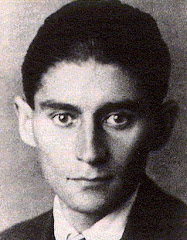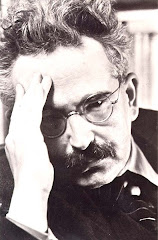In trying to explain why brilliant thinkers often do foolish or evil things, the story of Thales is often cited. According to legend, while Thales was staring at the stars and contemplating the heavens, he fell into a well. Those who use this story to account for the totalitarian streak in philosophy, from Plato, who supported the tyrant of Syracuse, to Heidegger, who pronounced Adolf Hitler the redeemer of the German Volk and Western metaphysics, accept, at least implicitly, a view that opposes theory and practice. Thus, the more worldly one is, the less philosophically enlightened; the more philosophically enlightened, the less able to negotiate one's way in the world. According to the view, then, we face an either/or. We can either reach for the heavens while forsaking the laws of the earth (an option endorsed by mystics and ubermenschen alike) or we can make ourselves at home in the world around us. This either/or position would have us choose between falling into a well while appreciating the heavens and avoiding the well while only being able to stare at what's in front of our feet. If we elect a quixotic life of searching for meaning, we leave ethics behind. If we elect a en ethical/practical life, we abandon identity/authenticity and become mere automata in a social machine.
Now, thankfully, this dichotomy is not so markedly true, and there remains a way to synthesize heaven and earth, love of God and love of Man, dynamic striving and firm commitment, mysticism/nihilism/antinomianism and materialism/rationalism/positivism. But before sketching out why and how such a middle ground is achievable, let us see whether this dichotomy is not simply born out of a disappointed faith in man, but rather additionally out of a disappointed faith in God.
Imagine, for a moment, that the tension between heaven and earth plays out not only for us, but for divinity as well. Thus, just as we must decide between a life of meaningful thinking and rightful doing, God must also elect between the two. For God, the earth is his heaven. And as he stares contemplatively at the earth above (existentially, for God, earth is higher than heaven), he stumbles into a heavenly well. That is to say, he forgets his obligation to be Master of the Universe. Just as the mystic seeks to lose his I-hood in ecstatic experience, God desires the same. But leaving behind his Godly ego, God forgets his duties to judge the wicked, reward the just, revive the dead, etc. So ensnared in the aesthetic and transcendental experience of existence, God is paralyzed, or perhaps, worse, God acts unintentionally or wrongfully. He mistakes the laws of earth for the laws of heaven, just as the mystics mistake the laws of heaven for the laws of earth.
Man being in the image of God, or God being the reflection of man (Xenophanes famously said that if humans were horses, God would have hooves), this scenario is not entirely absurd. Indeed, if we understand humans and God to be in covenant and to shape each other as only Others can (Philosophy from Kant to Sartre has stressed the role that an a priori existence of a not-I, of an Other, plays in forming who we are, and indeed, in allowing us "to be" or "to be conscious of our being"), then the trade off may have originated in earth or in heaven and inexorably assimilated itself into the other realm. That is, the trade off either originated in God's very creation of the world, or emanated from man's pursuit of his free-will in opposition to the will of God. (Of course, logically and paradoxically, that we should violate God's will must also have been part of God's will).
Now we can see that on some level, the question of theodicy is one of anthropodicy. A.J Heschel makes this very point in God in Search of Man. And the subscribers of the aforementioned dichotomy do not simply express a dismay at the inability of philo-sophy, of love-of-wisdom, to prevent atrocities, but at philogeosy (God's love of earth, a love that renders him impotent) as well.
Now, to zoom out and solve the problem of this either/or, which if unmediated, would be sure to cause us disappointment.
Fichte, an ethical idealist, offers us the groundwork. According to him, reason alone, philosophy alone, meditation alone, can prove nothing. Theory cannot prove that there is a God, that we are free, that knowledge of anything can be attainable, that there is a moral imperative. Theory cannot prove anything precisely because what it seeks to prove can only be proven while it's in motion. Thus, we prove that there is a God by acting as if God existed. And in so acting, bring God that much closer to the reality we desire our concept of him to posses. We cannot prove that we are free, since so long as we are in our armchairs thinking about freedom, we are not. Yet by acting as if free, by seeking to do the moral thing, dictated not necessarily by political laws, but rather by our consciences, we bring ourselves that much closer to freedom. Though we don't possess any pre-suppositionless first principle of philosophy, by questing for a system of knowledge, we intimate ourselves to the reality of the possibility that there is a system of knowledge with a first principle, and in so doing, climb the asymptote that separates us from it.
Thus, by striving to prove what we can only believe, by seeking to incarnate in ourselves and our world what we can only observe from afar in the shadows of the milky way, and in attempting to instantiate through works, moral and artistic, what we hope to already be built into the the fabric of existence, we are able to "bring heaven down to earth" and earth up to heaven. In bridging the two, we save God from facing his either/or. We redeem God, allowing him to find meaning in redeeming our world.
Tuesday, July 8, 2008
Subscribe to:
Post Comments (Atom)






No comments:
Post a Comment